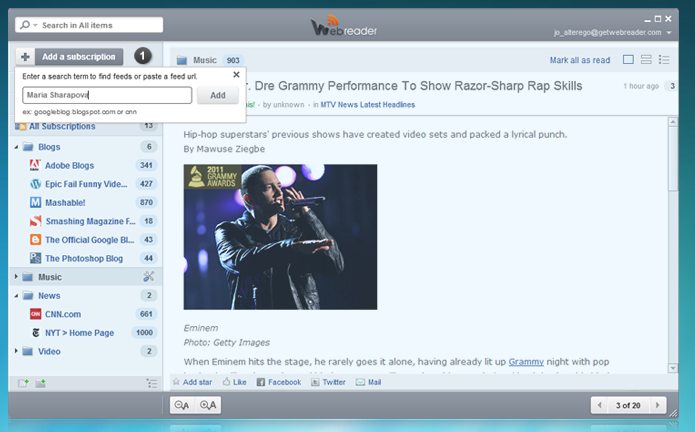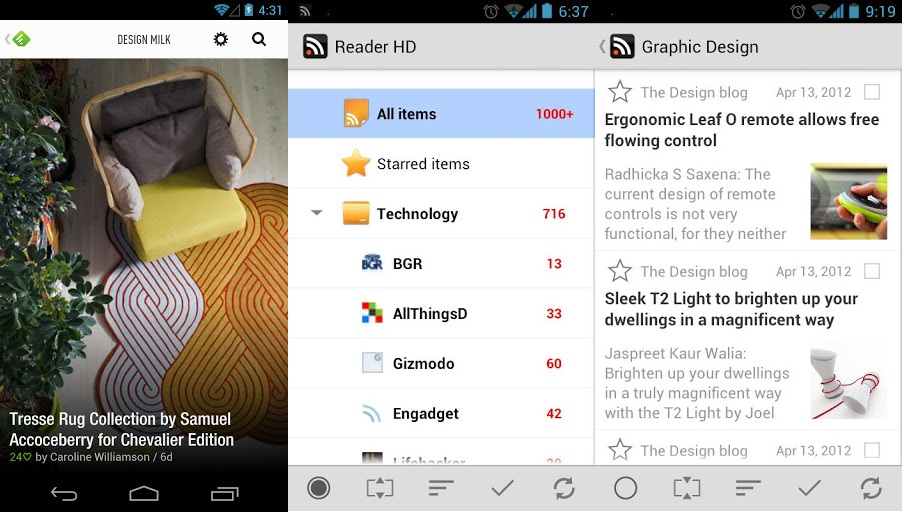
The availability of these services, however, doesn’t completely cover up the fact that the demand for RSS has been on a downward spiral for a long time – in fact, Google’s decision to eliminate Reader from its roster seems to be a clear and blaring sign of the RSS feed market edging into obsolescence. You also have Web-based feed readers like Google Reader and reader applications for portable devices, making it even easier for users to be on top of important updates on-the-go. To date, there are a great many RSS feed clients to choose from – you have news aggregators from the likes of Drudge Report, NewsNow, and, and further popularized by sites like Huffington Post and of course, Google News. Thanks to its growing usefulness, along with more websites offering their own feed came the onset of aggregation websites and services, including RSS feed readers. For content providers, RSS is a tool for increasing site traffic and overall popularity as well as eliciting new (and regular) subscribers. It’s become a default technology for a variety reasons, but it’s RSS’ crux that has kept it so beloved: It keeps us well-informed in a timely manner and on our terms no subscriptions, no newsletters, no outside formatting or ads. One of the first, most popular sites that offered users the option to subscribe to RSS feeds was the New York Times, and the company’s implementation of the format was revered as the “tipping point” that cemented RSS’s position as a de facto standard. Google’s decision to eliminate Reader from its roster seems to be a clear and blaring sign of the RSS feed market edging into obsolescence.RSS began its development in the early 90s and gave various websites the opportunity to dish out new information and users the hassle-free experience of seeing brand-new content without having to visit various sites individually. Sorry to beat a dead horse, but if you need a scenario to understand RSS better, imagine this: It’s like being Facebook friends with all your favorite sites and being up-to-date with all of their postings (minus the News Feed’s pitiful algorithm of course). A user can go to his or her favorite sites and subscribe to each one’s RSS feed in order for the sites’ latest content to all show up in the user’s reader of choice. RSS readers grab content from whatever Web domain you want and puts it into one standard format or “feed,” making it easier to review a collection bin of information sourced from various parts of the Internet from a single platform. RSS – officially defined as Rich Site Summary – is more popularly known as Really Simple Syndication. The best way to answer these questions is to go back to the beginning. What Google might not want to keep alive, plenty are inspired to reinvent – but why? And which will win the race? The death of Google Reader has, however, instilled a renewed interested in the RSS feed in general in developers, and you know what they say about doors closing and windows opening. You’ve grown used to this customized feed that pulls what you want from where you want. Today, July 1, marks the end of an era: Google Reader is officially no more. For those of you mourning this loss, we send our deepest condolences – it’s difficult, we know. If you wish to translate another RSS feed, or offer the same feed but in another language, just go back to step #1. That’s actually the new URL of the translated RSS feed which you can directly subscribe in Google Reader or any other news reader app like Reeder, Flipboard, etc.

Google Script will now offer you a link to the web app.
Did you know you can deploy your own Google Script to translate RSS feeds, and then subscribe to them in your preferred RSS Reader (like inoreader?) But one feature was missing: free and easy RSS Feed Translation.

After Google Reader was decommissioned, I was happy to find that inoreader was an excellent replacement.


 0 kommentar(er)
0 kommentar(er)
